C7 – Climate Strategies for and with Children towards Resilient Development in Indonesia
- Indonesia Pavilion COP29
- Monday, 18 November 2024
- 11.30 - 12.50 (Baku Time GMT+4)

About
A. Background
Globally, the Paris Agreement has entered into force since 2018, and currently 196 countries are registered as members of the Paris Agreement. The third meeting of members of the Paris Agreement (CMA3) in 2021 and the Fourth meeting (CMA 4) in 2022 has resulted in a decision to implement article 6 of the Paris Agreement both through market and non-market mechanisms.
Voluntary cooperation in market mechanisms (A6.2 and A6.4 PA) can be carried out in the form of trading or sharing financing to carry out mitigation and adaptation actions to produce reductions in GHG emissions. The results of mitigation actions in the form of reducing GHG emissions in tons of CO2 can be partially transferred internationally to international cooperation partners. Cooperation between countries is carried out through the A6.2 PA mechanism and cooperation between the private sector is carried out through A6.4 PA.
Meanwhile, voluntary cooperation between the government, private sector, public entities and civil society organizations in non-market mechanisms through providing funding support, capacity building and technology transfer for mitigation and adaptation actions is carried out through A6.8 PA. In this collaboration, the results of mitigation actions are fully for the NDC host country and there is no transfer of carbon credits to overseas partner countries.
Indonesia already has a regulatory framework that is complete, simple and easy to implement. These regulations are President Degree number 98 of 2021 and Minister of Environment and Forestry Regulation Number 21 of 2022 and their derivative regulations. These regulations refer to CMA decisions and other UNFCCC decisions, as binding regulations for its members or regulated markets and non- markets. Article 6 cooperative approaches to implement NDC and enhanced their ambitions are as carbon market and also carbon finance opportunities. The objective of talk show is to share information 2 / 8 Tanggal : 20 September 2024 Nomor : ND.435/PPI/SETPPI/DTN.3.1/B/09/2024 and progress of cooperative approaches under article 6 PA, including pilot project implementation from Indonesia in Indonesia Pavilion COP 29.
The talk show is targeted at a diverse audience such as business leaders, financial institutions, policymakers and regulators, academics, and researchers.
B. Objective and Output
– To raise awareness of adverse impacts of climate change on the rights, well-being and development of children in Indonesia based on the CLAC
– To discuss recommendations and practices for climate policy and cooperation to strengthen climate action (policy, programmes, and plans) for and with children across governance levels (international, regional, local) and social sectors critical to children
– To share recommendations to strengthen the participation of young people in climate policy decision-making and implementation across sectors
– To promote lessons and strategies from Indonesia to the wider range of stakeholders in international climate policy and intergenerational climate justice
Live Stream
Presentations
Keynote Speaker

Novia Widyaningtyas
Expert Staff to the Minister of Environment and Forestry on Industries and International Trade, Ministry of Environment and Forestry, Republic of Indonesia
Speakers

Irawan Asaad
Director of Climate Change Adaption, Ministry of Environment and Forestry, Republic of Indonesia

Ingrid Sanchez Tapia
Senior Advisor Education and Climate, UNICEF

Dianawati Lasmindar
Planner, Ministry of Women Empowerment and Children Protection, Republic of Indonesia

Amalia Narya Saleha
Young Climate Advocate, Mitra Muda UNICEF
Moderator

Nur Masripatin
Senior Advisor to the Minister of Environment and Forestry (2015-2024), Republic of Indonesia





































